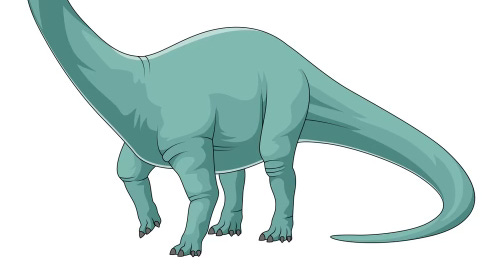"Jurassic World Rebirth" is an anticapitalist masterpiece a la Dr. Jonas Salk
Dr. Salk invented the polio vaccine, then gave it away for free.
Introducing Dr. Salk…
When the epidemiologist Dr. Jonas Salk invented the polio vaccine in 1955, seventy years before this article was written, he famously declared that medicines which help the masses should not profit merely the few.
In the words of his son Dr. Peter Salk — who works at the University of Pittsburgh's School of Public Health and spoke with this author for Salon in 2023 — the father believed that "the people" are the proper owners of all such vaccines. At the time Salk explained his reasoning with a famous rhetorical question:
"Could you patent the sun?"
I thought of this line as I watched “Jurassic World Rebirth.” Much like the previous six installments in the “Jurassic” franchise, “Jurassic World Rebirth” is based on the premise that humanity’s greatest scientific achievements (such as, hypothetically, resurrecting dinosaurs) can have terrible unexpected consequences. Also like its predecessors, “Jurassic World Rebirth” effectively maintains this narrative thread through to the end.
But the motion picture also does something special, a feat that made me think of the Salks. It challenges the notion, embedded in our spiritual DNA by capitalism, that profit-seeking is inherently noble.
"My father absolutely did not have any interest personally in the vaccine being patented," Salk told me in 2023. The March of Dimes even hired an attorney to explore patenting the polio vaccine, but as Salk explained, "the thing that struck me was my father's absolute disinterest in getting together with that patent attorney. It was very rather frustrating for the attorney because my father was completely focused on the work that was in front of him."
Introducing Rebirth (minor spoilers follow)…
In “Jurassic World Rebirth,” a group of scientists and mercenaries (Scarlett Johansson, Mahershala Ali, Jonathan Bailey) express an idealism that would make both Salks proud. First, they acknowledge that human-caused climate change is limiting the geographic range of that universe’s fictional dinosaurs, automatically meaning that “Jurassic World Rebirth” has more courage than other recent blockbusters like “Twisters,” which avoid discussing global warming.
Additionally, “Jurassic World Rebirth” is clever in recycling the thematic tropes from the previous six movies while adding its own unique spin. Specifically, this is a “Jurassic Park” movie that criticizes capitalism in its closing scenes. As the plot winds down, and we catch our breath from the breakneck pace of high concept set pieces (the best involves a Titanosaurus), the scientists who harvested dinosaur DNA to develop a cure for heart disease decide to give away their upcoming medicine for free.
I’m not going to pretend this in itself makes “Jurassic World Rebirth” a great movie. In terms of special effects, action scenes, character development and social commentary, I believe the best “Jurassic Park” movie was the fifth installment, “Jurassic World: Fallen Kingdom.” “Jurassic World Rebirth” by contrast is closer qualitatively to “Jurassic Park III,” telling a self-contained jungle adventure story that moves briskly and otherwise leaves little lasting impression.
At the same time, in its finale, “Jurassic Park Rebirth” fully fleshes out anticapitalist themes that previous installments only hinted at. For that reason alone, “Jurassic World Rebirth” is a masterpiece.
Pun intended: The story here capitalizes on ideological opportunities that the other films only glance superficially. Early in the first movie, for example, billionaire John Hammond (Sir Richard Attenborough) scolds attorney Donald Gennaro (Martin Ferrero) for trying to charge thousands of dollars for tickets to his park.
“This park was not built to cater only for the super rich,” Hammond said. “Everyone in the world has the right to enjoy these animals.”
Shortly thereafter, Dr. Ian Malcolm (Jeff Goldblum) famously warns that the scientists who created these dinosaurs are committing grave hubris.
“Your scientists were so preoccupied with whether they could, they didn’t stop to think if they should,” Malcolm ominously intones.
From there, the other movies in the series went out of their way to stick their thumbs in the eyes of corporate America by depicting them as villainous and incompetent. Nevertheless, they did little beyond that to challenge capitalist assumptions about the virtues of our profit-driven economy. For this reason, we are left with the first two “Jurassic Park” movies being nothing more or less than immensely entertaining classics; the next two being disappointments, with “Jurassic World” standing in my mind as the worst in the franchise; the fifth being the best, followed by a sixth that was pretty damn good; and now we have a seventh movie that is better than the blockbusters’ worst and worse than the series’ best.
Introducing: Recommendation…
Of course I recommend this flick. If you want to see a movie with realistic-looking dinosaurs chomping on humans but good, “Jurassic World Rebirth” offers a great time. Isn’t that as much as needs to be said?
No, something else must be added. I refer to Dr. Alan Grant (Sam Neill), who had this observation during “Jurassic Park III” after learning his mentee Dr. Billy Brennan (Alessandro Nivola) stole velociraptor eggs.
“You have to believe me, this was a stupid decision, but I did it with the best intentions,” Brennan said.
“With the best intentions?” Dr. Grant replies. “Some of the worst things imaginable have been done with the best intentions.”
Brennan wanted to sell the eggs to fund future paleontological digs. Perhaps he had the best intentions, but his downfall was thinking in terms of profit.
That is to say, he acted like a capitalist.
Back Seat Socialism
Column by Matthew Rozsa who is a professional journalist for more than 13 years. Currently he is writing a book for Beacon Press, "Neurosocialism," which argues that autistic people like the author struggle under capitalism, and explains how neurosocialism - the distinct anticapitalist perspective one develops by living as a neurodiverse individual - can be an important organizing principle for the left.




